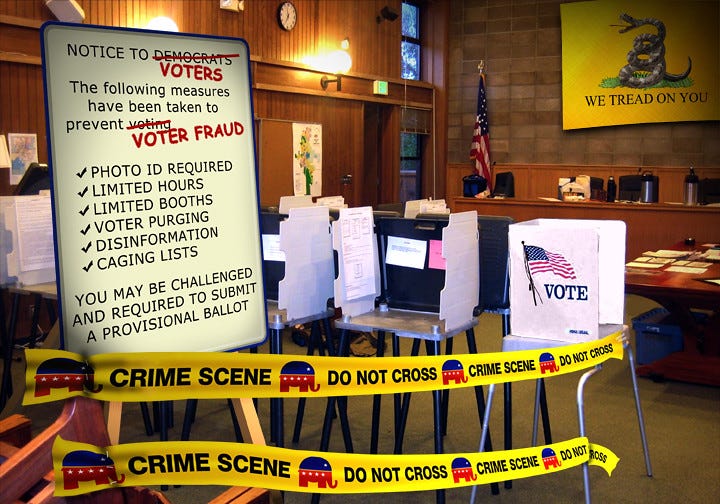How Post-Election Lawsuits Are Throwing Out Legitimate Votes
Why service members and students are forced to “fix” their ballots months later—and what you can do to make sure every vote counts.
By Dino Alonso
I’ve watched North Carolina’s once‑straightforward Supreme Court race become chaotic. Tens of thousands of military and overseas ballots—cast by men and women serving our country—are now stuck in a months‑long “cure” process, threatened with invalidation over technicalities they never even knew existed. What began as a fair election has morphed into a partisan tug‑of‑war that treats veteran ballots like political currency rather than sacred expressions of citizenship.
This is not an isolated glitch. In Pennsylvania and Michigan, similar lawsuits have sprung up almost immediately after key races were called—legal challenges aimed not at objective evidence of fraud, but at overturning outcomes unfavorable to one party. Candidates who fail at the ballot box file suit and demand that small, vulnerable groups—service members abroad, college students, minority communities—be forced to prove their votes all over again. It’s a blunt reminder that litigating has replaced losing gracefully until you win.
The everyday voter can feel trapped in a never-ending bureaucratic nightmare. You request your absentee ballot months in advance, fill it out correctly, and drop it in the mail. Election night passes with a sigh of relief—or perhaps a pang of disappointment. Then, weeks later, a letter arrives demanding a copy of your ID or an extra signature on a form you never saw. Miss the deadline, and you’re told your vote won’t count. No fraud was found. No invalid ballots were uncovered. Just a strategic decision to target anyone whose ballot profile can be pieced apart in court.
If we ignore this tactic now, it will metastasize. Swing states with tight margins will see every close contest followed by a wave of post‑election lawsuits, dragging out certifications, sowing doubt, and chilling turnout for future races. Voter confidence—once a bipartisan foundation—is at risk of eroding into cynical mistrust, one lawsuit at a time.
We have to step up as citizens. Sign up for local election board alerts so you’re the first to know if a “cure” notice lands on your neighbor’s doorstep. Urge state legislators to require that any ballot‑fixing process close before certification, not after. Support federal standards that set clear, uniform rules for ballot challenges. And volunteer as—or donate to—nonpartisan election observers who keep courts and election boards accountable when the lawsuits fly.
Democracy is woven from trust: trust that every citizen’s voice matters and that the result is final once an election ends. When we defend the rights of those who serve abroad, we defend the rights of every American to be heard. That’s not politics. That’s the essence of self‑rule—and it demands our vigilance before the next wave of post‑election purges takes hold.
If this piece helped clarify things for you, send it to one person. Just one. That’s how we grow—one conscience at a time.
Related Reading:


